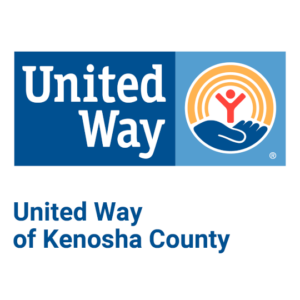The Kenosha County Council on Alcoholism opened its office in August of 1968 and incorporated on March 11, 1969 under the direction of Robert White, Sr. The goal of the agency was to provide direct service through counseling for alcoholics. In the first five months 41 new clients were counseled, and in 1969, the Council’s first full year in service, 135 new clients were counseled.
Reflecting the rapidly growing need for the Council’s services in the community between 1968 and 1977, the agency underwent major changes and huge growth. Staff increased from two to twenty-two, and the budget grew from $18,000 to almost $190,000. The name even changed in October 1976 to reflect the increasing attention to abuse of drugs other than alcohol. The Kenosha County Council on Alcoholism became the Alcohol and Other Drugs Council of Kenosha County, Inc. The focus of the agency changed from providing counseling but maintained its focus on prevention (alerting the community to the problems and need) and referral.
The Council eventually changed its focus from out-patient treatment to providing assessments and referrals. As a leader in this field in Wisconsin, the Council became the agency that contracts with the State of Wisconsin for mandated assessments for Kenosha County residents, particularly when a person is charged with operating a vehicle while intoxicated. An assessment through the Intoxicated Driver Program, a procedure designed to examine a client and his/her alcohol and/or other drug use habits, is conducted by a state of Wisconsin trained assessor. Most clients assessed are also required to attend an Impact Panel in order to hear powerful stories told by individuals who have been impacted by drinking and driving, whether they have lost friends or family members, been seriously injured, or caused a fatality.
After Bob White left the Council’s service in the late ’80s, Franklin Gail and Jim Jones followed in the position of Executive Director.
Mary Jane Landry then served as Executive Director from December 1990 until May 1999. During her tenure, the Alcohol and Other Drugs Council, Inc. experienced even more growth. In a bold and creative move, Mary Jane won funding from a grant through the Federal Bureau of Children and Family Services where the emphasis was the care of children from homes where substance abuse caused dysfunction and presented a danger to the children’s well being. With this money the Children’s Safe House was established in 1992 and operated as a cornerstone project of the Council until 2009. The Children’s Safe House, provided Emergency Foster Care, short-term foster care services to children from birth through 12 years who were removed from their homes by Kenosha County Division of Child and Family Services because of familial dysfunction associated with substance abuse, child abuse and/or neglect or any related stressors.
Mary Jane Landry left the Council in June 1999, turning the reigns over to Jeanne Pataska who had served under Mary Jane’s direction for six years.
Jeanne Pataska served as the Executive Director until August 2005. At that time, Susan Jepson-Leach, Business Services Director and the longest-tenured employee at the Council, having served since September 1976, was appointed as the Interim Executive Director.
Susan served as Interim Executive Director until Katie Pedicone was hired as Executive Director in July 2006. Susan retired in 2015, after 39 years of service to the Hope Council.
Katie brought another new program to the Council, the Underage Drug and Alcohol Accountability Program (UDAAP), for those who have been issued a citation for underage drinking or a young person cited for possession of marijuana in Kenosha County. This program is an alternative to paying the citation and facing the ancillary effects of having such a violation on one’s record.
Katie also oversaw the change of the name and the mission for the agency. The Alcohol and Other Drugs Council became the HOPE Council, Inc. in 2008. The HOPE Council strove toward Helping Others through Prevention and Education (HOPE).
Guida Brown became the Executive Director in January 2009 and led the agency through a number of changes over the next 13 years.
In 2010, I Am Special was re-introduced. This project is for elementary-aged children with parents or caregivers with substance use disorders. I Am Special was originally established in the 1980s as a project of the Hope Council, and its goals remain the same today: to educate children about alcohol and other drugs in order to develop their awareness of the effects of substance abuse on families and to provide a supportive, safe place to talk about feelings and learn to cope with them in positive ways. What holds true today as it did on the day the Council was incorporated in 1969 is that the agency’s primary concern is to remain faithful to the trust placed in its staff and the services provided, not only by funding agencies (both private and public) but particularly by those served by the Hope Council.
In 2011, Guida oversaw the agency’s return to its root with yet another name change: Hope Council on Alcohol & Other Drug Abuse, Inc. The mission of the Hope Council is to reduce the impact of alcohol and other drug abuse in our community by providing education, prevention, intervention, and referral services.
Recovery Coaches were added to the Intoxicated Driver Program; this program component is free, voluntary and has no bearing on the Driver Safety Plan, but it’s an opportunity to provide additional support to those clients beginning their walk in recovery. In 2014, Family Recovery Coaches were also added.
In 2012, the Hope Council, in collaboration with Kenosha Human Development Services (KHDS), began its Intervention Project. An intervention is a carefully planned process involving family and friends and sometimes colleagues, clergy members or others who care about a person struggling with addiction. During the intervention, these people gather together to confront the person about the consequences of addiction and ask him/her to accept treatment. This project is co-facilitated by staff from the Hope Council and Kenosha Human Development Services.
This same year, the Hope Council also began a partnership with Oxford House and leased its building at 1630 56th Street, the former Children’s Safe House, to be used as Oxford House Lena, a self-supporting, democratically run, sober-living home for women and their children.
The agency was selected as the 2013 Nonprofit Leadership Excellence Award winner by the University of Wisconsin Parkside’s Center for Community Partnerships, and it received the NAACP’s Kenosha Branch’s 2012 Positive Impact Award.
Upon Guida’s retirement in April 2022, Michelle Sandberg was appointed Executive Director and continues to lead the agency today.
Under Michelle’s leadership, the Hope Council relocated operations to its current home at 6103-39th Ave. Kenosha, WI 53142.
Michelle also oversaw the agencies procurement and implementation of the first Public Health Vending Machine (PHVM) in Kenosha County. The PHVM is located outside the Council’s office and is stocked with Narcan (Naloxone) – a lifesaving medication that reverses the effects of an opioid overdose, Fentanyl test kits, drug deactivation kits, and a number of other personal health supplies. All products in the PHVM are FREE and accessible to anyone in the community 24/7 – no questions asked!
Michelle has big plans for the Council and continues to lead with compassion, empathy, and integrity.
For more information on any of these programs, please contact the Hope Council at (262) 658-8166 or via email at info@hopecouncil.org.

